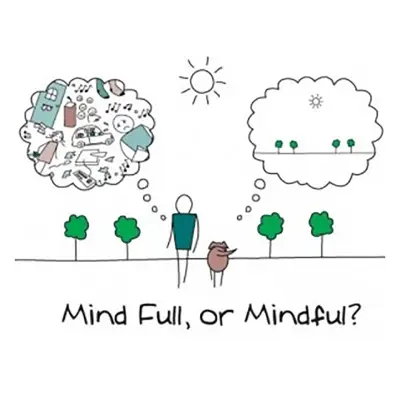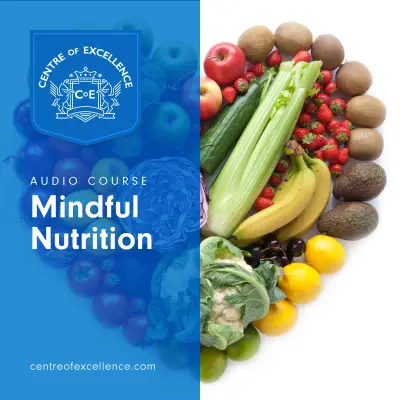Buddhism is a widely practised spiritual path, offering guidance on leading a life filled with harmony, wisdom, and compassion. At the heart of this practice are the Five Moral Precepts. These are not strict rules but gentle guidelines designed to help Buddhists live a fulfilling and ethically sound life. Let's explore these precepts and see how they can illuminate our daily lives.
Jump to:
- Respect for Life: "I Undertake the Precept to Refrain from Taking Life"
- Generosity and Respect for Others' Property: "I Undertake the Precept to Refrain from Taking What is Not Given"
- Responsible and Respectful Relationships: "I Undertake the Precept to Refrain from Misconduct in Sensual Pleasures"
- Truthful Communication: "I Undertake the Precept to Refrain from False Speech"
- Mindfulness and Clarity: "I Undertake the Precept to Refrain from Intoxicants that Cloud the Mind"
- Frequently Asked Questions About the Five Precepts in Buddhism
1. Respect for Life: "I Undertake the Precept to Refrain from Taking Life"

The first of the 5 Buddhist Precepts is a sincere commitment to the sanctity of life. This principle impacts many aspects of daily living:
- Universal Compassion: Embracing kindness and compassion for all living beings, not just humans. This includes animals and insects, acknowledging their right to live undisturbed.
- Mindfulness in Action: Being conscious of our actions and how they affect others. Making choices that reflect non-violence and compassion in everything from your diet to daily interactions.
- Non-Violence as a Way of Life: Advocating for peace and non-violence in all situations. This extends to your words and thoughts, promoting a culture of respect and kindness.
- Emotional and Psychological Respect: Ensuring your actions contribute positively to the emotional and psychological wellbeing of others. This involves speaking and acting in ways that uplift and support rather than harm.
- Ethical Choices and Lifestyle: Making lifestyle choices that reflect this respect for life. This can be seen in vegetarianism, ethical consumerism, and animal and environmental rights advocacy.
- Cultivating a Peaceful World: Buddhists are encouraged to create a harmonious environment, fostering peace and respect for all life forms through this precept.
2. Generosity and Respect for Others' Property: "I Undertake the Precept to Refrain from Taking What is Not Given"

This second precept in Buddhism focuses on the virtues of honesty and integrity with the possessions and property of others:
- Honesty in Your Actions: Encourages you to live truthfully, ensuring that your actions do not involve taking what isn’t rightfully yours. This includes avoiding all forms of stealing and dishonest gains.
- Respecting Others’ Belongings: Urges you to respect the property of others, acknowledging that each person's belongings are an extension of their hard work and personal journey.
- Cultivating Generosity: This precept is also about developing a spirit of giving. By practising generosity, you contribute to a culture of kindness and sharing.
- Building Trust in Relationships: When you commit to this precept, you help build and maintain trust in your relationships. Honesty is key to fostering strong, healthy connections with others.
- Fostering Contentment: This principle guides you towards appreciating what you have rather than coveting what belongs to others. It encourages a mindset of gratitude and contentment.
- Reducing Conflict: By respecting the property of others and not taking what is not given, you play a role in reducing conflict and promoting peaceful coexistence.
3. Responsible and Respectful Relationships: "I Undertake the Precept to Refrain from Misconduct in Sensual Pleasures"

The third Buddhist precept emphasises the importance of integrity and respect in your relationships, particularly in the context of sensual pleasures:
- Respect in Relationships: This precept encourages you to engage in relationships with a deep respect for yourself and others, recognising the dignity of everyone in your interactions.
- Consent and Mindfulness: Emphasises the importance of consent in all your relationships. It's about being mindful of your actions and ensuring they are consensual and respectful and do not harm others.
- Avoiding Harmful Conduct: Urges you to steer clear of actions that could be harmful or disrespectful in your relationships. This includes avoiding behaviours that exploit, manipulate, or demean others.
- Building Trust and Harmony: By adhering to this precept, you build trust and harmony in your relationships. You’ll nurture connections based on mutual respect and understanding.
- Personal Responsibility: Highlights your responsibility in maintaining the integrity of your relationships, making choices that reflect your values and respect for others.
- Meaningful Connections: This precept guides you towards forming meaningful and harmonious relationships that are enriching and nurturing for everyone involved.
4. Truthful Communication: "I Undertake the Precept to Refrain from False Speech"

The fourth Buddhist precept is dedicated to the practice of truthfulness in communication:
- Value of Honesty: This precept underscores the importance of honesty in your words and actions and being truthful in your expressions and dealings with others.
- Beyond Avoiding Lies: This precept also encourages you to consider the impact of your words. Ensure your words are kind, helpful, and constructive.
- Fostering Trust and Understanding: Honest communication is key to building trust and understanding in relationships. When you speak truthfully, you lay the foundation for strong, reliable connections.
- Mindful Speaking: This precept invites you to be mindful of what you say, how you say it, and the effect it may have. Learn to use speech as a tool for good, to uplift and support, rather than to harm or deceive.
- Harmonious Interactions: You contribute to more harmonious and peaceful interactions by sticking to truthfulness in your speech. It helps in avoiding misunderstandings and conflicts that arise from miscommunication.
- Ethical Expression: This principle encourages you to align your speech with ethical values, reflecting your integrity and respect for others.
5. Mindfulness and Clarity: "I Undertake the Precept to Refrain from Intoxicants that Cloud the Mind"

The fifth Buddhist precept focuses on maintaining mental clarity and mindfulness:
- Avoiding Mind-Altering Substances: This precept advises you to abstain from substances like alcohol and drugs that impair judgment and mental clarity, keeping your mind clear to make wise decisions.
- Cultivating a Clear Mind: Emphasises the importance of a clear and conscious mind. Avoiding intoxicants enhances your ability to be present, aware, and fully engaged in life.
- Making Wise Decisions: With a clear mind, you are better equipped to make decisions that are thoughtful, compassionate, and considerate of the well-being of yourself and others.
- Understanding the Impact of Choices: This precept invites you to reflect on how your choices, particularly regarding substance use, affect your mind, your life, and those around you.
- Promoting Mental and Emotional Health: By committing to this precept, you contribute to your overall mental and emotional health, fostering a state of well-being that is free from the clouding effects of intoxicants.
- Enhanced Mindfulness: This principle supports the practice of mindfulness, helping you to maintain a state of mental clarity that is conducive to meditation and spiritual practice.
Frequently Asked Questions About the Five Precepts in Buddhism
As we explore the Five Precepts of Buddhism, you might have questions about how they fit into everyday life or their broader significance. Let’s address frequently asked questions to give a clearer understanding and deeper insight into these guiding principles.
Q: Are the Five Precepts considered mandatory rules in Buddhism?
A: The Five Precepts are not mandatory rules but guidelines for personal and spiritual growth. They are recommendations for ethical conduct and are seen as a path to living a life that creates harmony, reduces suffering, and promotes spiritual development.
Q: How do the Five Precepts impact daily life?
A: The Five Precepts serve as a moral compass in daily life. They encourage mindfulness in actions and speech, foster respect for others and their belongings, promote harmonious relationships, and support mental clarity. Practising these precepts can lead to more peaceful interactions and a deeper sense of personal integrity.
Q: Can non-Buddhists follow the Five Precepts?
A: The Five Precepts are universal and can be adopted by anyone, regardless of their religious or spiritual background. They are about ethical living and creating a life of harmony and respect, which are values that transcend religious boundaries.
Q: Is it okay to not follow the Precepts perfectly sometimes?
A: Buddhism acknowledges human imperfection and does not demand absolute adherence to the precepts. The key is to be mindful and aware of your actions and intentions. Making mistakes is part of the human experience, and what is important is the willingness to learn and grow from them.
Q: How do the Five Precepts relate to meditation and mindfulness in Buddhism?
A: The Five Precepts complement meditation and mindfulness practices in Buddhism. Living ethically and mindfully according to these precepts creates a conducive environment for deeper meditation and spiritual practice. They help cultivate a calm and clear mind, essential for effective meditation.
Q: How do the Four Noble Truths apply to the Five Moral Precepts?
A: The Four Noble Truths, Buddhism's core teachings on suffering and its cessation, are closely linked to the Five Moral Precepts. These precepts are practical ways to live out the Noble Truths, especially the Fourth Noble Truth, which is the path to end suffering. By following the precepts, such as practising non-violence and honesty, individuals work towards reducing suffering in themselves and others, embodying the ethical and mindful living encouraged by the Eightfold Path.
Recommended for you!
Best SellersDiscover Buddhism with Centre of Excellence
If you’re fascinated by the teachings and philosophy of Buddhism, our Buddhism Diploma Course offers an immersive journey into this ancient spiritual practice. You'll gain deep insights into Buddhist concepts and meditation techniques, and you can apply Buddhist teachings in everyday life.
What You'll Gain:
- Comprehensive Understanding: Delve into the core teachings of Buddhism, including its rich history, diverse traditions, and fundamental principles.
- Meditation and Mindfulness Skills: Learn practical meditation techniques and mindfulness practices to incorporate into your daily routine for inner peace and clarity.
- Personal Growth and Spiritual Empowerment: Empower yourself with knowledge that enlightens the mind and nurtures the soul, enhancing your personal and spiritual development.
Special Offer:
We're thrilled to offer you this transformative course at a special price of just £29, a substantial discount from the usual rate. This is your opportunity to engage with the wisdom of Buddhism and explore its potential to positively transform your life.













